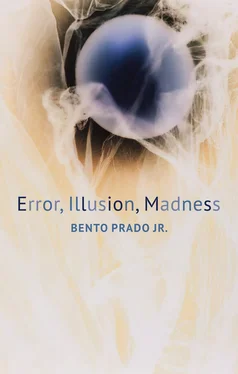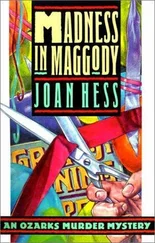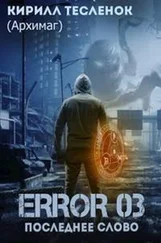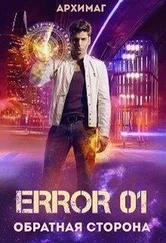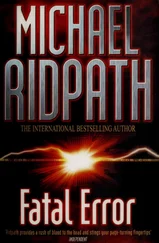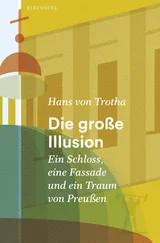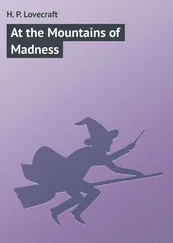We went sleepwalking along the road between abysses.—But even if we now say: “Now we are awake,”—can we be certain that we shall not wake up one day? (And then say:—so we were asleep again.)
Can we be certain that there are not abysses now that we do not see? But suppose I were to say: The abysses in a calculus are not there if I don’t see them!
Is no demon deceiving us at present? Well, if he is, it doesn’t matter. What the eye doesn’t see the heart doesn’t grieve over. 14
However, if we thus project Wittgenstein’s paragraph onto Goya’s etching, which we may legitimately do, something about the richness of our perception is perhaps lost. This paragraph is at once anti-Cartesian and anti-Hilbertian in its treatment of mathematics. Already in Descartes, the dream argument was not enough to place mathematical truth at risk: if I am sleeping, my representations that refer to the physical world can lead me into error; however, even while I dream, 2 + 2 = 4! Only the hypothesis of the evil genius suspends the evidence of simple ideas. And Wittgenstein adds that no “little devil,” however tricky, can put the assuredness of my mathematics at risk. What is more, unlike Hilbert, I need not try to prove the consistency of my theory: once I prove that all the propositions that compose it derive from my axioms, there is no need to demonstrate that all are compatible among themselves and are never contradictory. It is not necessary to “fumigate” the system so as to eliminate the “virus” of any virtual contradiction. I should not fear that, in some dark corner, at the intersection of two deductions, my theorems will contradict one another. This operation would contradict the finitism of Wittgenstein’s theory of mathematics by proposing a task that is simultaneously unnecessary and useless. It would also contradict his constructivism: if I run across a contradiction, I could change my arguments. In a word, every contradiction or every error supposes a horizon of certainty . Well, the absence of horizon is essential to Goya’s etching.
Let us therefore resume the analysis of this etching, rekindling a connection to the forgotten sophistic tradition that made this type of work into an important literary genre. 15If Wittgenstein’s problem was that of leaving philosophy, ours is one of entering it or restarting it . 16Let us begin with the distribution of light and shadow in the picture. As Michael Armstrong Roche observes, the light comes from the right, illuminating less than half of the figure and giving a glimpse of some faces and rocky obstacles. All the rest remains in darkness. We sense that we are at the top of a cliff, but no indication is given as to what is around it, either above or below. The white space in the upper right could be the sky above us all, illuminated by the sun, which infiltrates the enveloping fog. But it could also be the sea, as we catch sight of it from above—say, from the top of a hill. In fact the whole scene appears from above . In the upper left we see the same: a sky covered in clouds and an obscure and rough ocean-sea. At the edges, insulated as we are by the mist and lost in the mountain labyrinth, we can no longer locate ourselves on the horizontal plane, of course, since it concerns a labyrinth or an aporia , a path with no way out; but, above all, we can no longer locate ourselves on the vertical plane. If we are unable to discriminate the routes on the earth’s surface, this is because we are unable to locate ourselves, on earth, between heaven, which is above it, and hell, which is supposedly below. What is missing is precisely the horizon , or that which, without being the earth itself, would allow us to find our way on it. What we do not know, to recall the title of the classic text by Kant, is what it means to orient oneself in thought . Despite being perceived as a sky, the illuminated and obscure spaces in the picture are radically cut off from the immediate space covered by the wandering characters, and thus cannot serve as a guide or horizon. 17
“Where am I, what time is it?” 18That would be the form of philosophical enquiry according to Merleau-Ponty, and Goya’s etching illustrates it to perfection. Even though “I am who I am” ( ego qui sum ), I cannot clearly determine “who this ‘I’ is” ( quisnam sim ), as Descartes did in the Second Meditation, if my knowledge is not retroactively guaranteed by the loop that leads me to God and returns me to my most internal ipseity. Without the positive infinite (again, as Merleau-Ponty would say), I am lost not only in an indeterminate world, but also inside myself , as in the beautiful verses by the Portuguese poet Sá-Carneiro that are inscribed as this book’s epigraph. And that is why the book opens and unfolds under the sign of an aporia such as the one that Meno raised to Socrates. That is also why it points toward a future text on ipseity (or otherness, or both) and its horizon.
Having begun with Mário de Sá-Carneiro, I could not but end this preface with the verses of Luís Vaz de Camões who, in the wake of Petrarch, prefigured those by the twentieth-century poet:
I bear within one person
my torment as my better half;
myself a danger to myself. 19
I must thank three colleagues and friends—Arley Ramos Moreno, Sérgio Cardoso, and Paulo Eduardo Arantes—for authorizing the reproduction of their comments on four of my lectures. The comments often extend and complement my arguments, augmenting them with material beyond my reach, or else oppose them and open unimagined alternative paths in my texts. This is why it did not seem opportune to try to respond hurriedly to the occasional criticism in these comments, especially as I am not certain that I would be capable of doing it adequately, at least not now. Let us therefore leave room for the future—and above all for those readers who may linger over what is between these lines and discourses, finally making up their minds, as is in their power, about the ultimate sense of this book.
I would like to thank my sister, Anna Lia Amaral de Almeida Prado, and my wife, Lúcia Seixas Prado, for the thankless labor they undertook of correcting and revising these texts.
Bento Prado Jr., São Carlos, Vila Pureza, March 2002
1 1 Opening remarks at the debate promoted by the Collège International de Philosophie to celebrate the launch of Présence et champ transcendantal: Conscience et négativité dans la philosophie de Bergson (Hildesheim: Georg Olms, 2002). This brief presentation on the origin and structure of my thesis was translated and published in the Mais! supplement of Folha de São Paulo on March 29, 2002.
2 2 This is the same Raggio—an Argentinian logician of international prestige, who identified himself as a citizen of the world—who said that he saw greater philosophical interest in Herder than in the whole analytic tradition.
3 3 In a working note from January of 1959, Merleau-Ponty wrote: “Our state of non-philosophy—Never has the crisis been so radical.” In March 1960, describing this “malaise of culture” still further, he added: “There is a danger that a philosophy of speech would justify the indefinite proliferation of writings […]—the habit of speaking without knowing what one is saying, the confusion of style and of thought etc. Yet: (1) it has always been that way in fact—the works that escape this profusion are academic works (2) there is a remedy, which is not to return to the American analytic–academic method—which would be to retreat from the problem—but to proceed over and beyond by facing the things again.” See Maurice Merleau-Ponty, The Visible and the Invisible, trans. Alphonso Lingis (Evanston: Northwestern University Press, 1968), pp. 165, 239. Perhaps Merleau-Ponty did not suspect, in his diagnosis of the state of non-philosophy, how much worse the crisis would become in the following decades, culminating in the misery of today’s absolute hegemony of university philosophy.
Читать дальше
